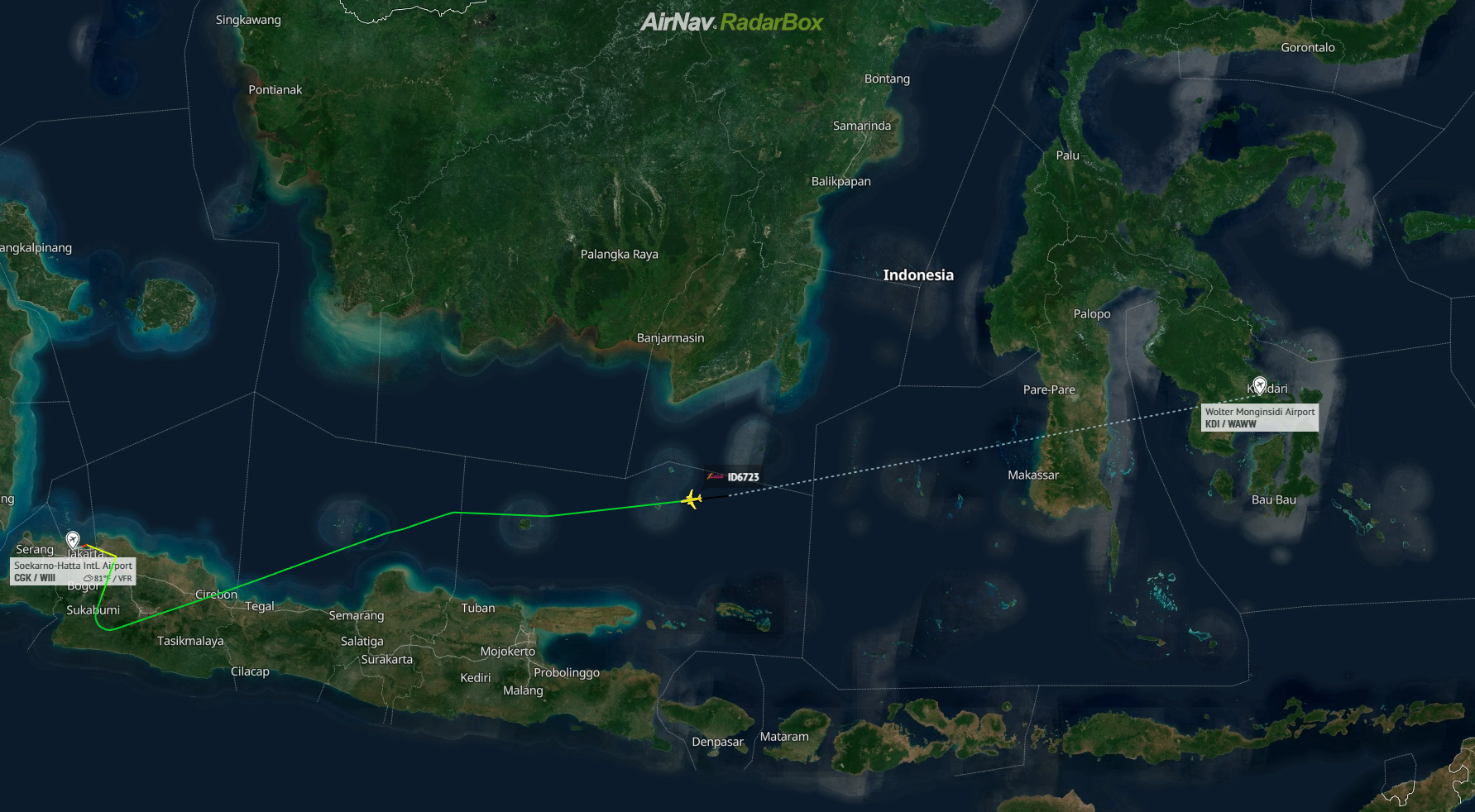

Batik Air flight ID6723 from Kendari-Celebes Island to Jakarta
On January 25th, 2024, an Airbus A320 (Reg. PK-LUV) performing flight ID6723, operated by Batik Air, carrying 153 passengers and four flight attendants, experienced an unexpected incident. Both the pilot and co-pilot simultaneously fell asleep for approximately 28 minutes. The journey from Kendari to Jakarta took an unexpected turn, encountering navigational errors that led to a deviation from its intended flight path, as outlined in the initial report issued by the National Transportation Safety Committee (KNKT).

Batik Air flight ID6723 from Kendari-Celebes Island to Jakarta (Log)
Upon reaching the cruising altitude of 36,000 feet, both pilots removed their headsets, and the cockpit loudspeaker volume was elevated. Following this, the Pilot-in-Command (PIC) requested permission to rest from the Second-in-Command (SIC), which was granted. Within moments, the PIC fell asleep, and the SIC assumed the role of Pilot Monitoring (PM) in place of the PIC.
Upon awakening, at 0122 UTC, the PIC inquired whether the SIC wished to take a rest, to which the SIC declined. Subsequently, the pilots engaged in a non-duty-related conversation for approximately 30 seconds, after which the PIC resumed sleeping.
According to the preliminary report from the KNKT, none of the passengers or crew members incurred injuries during the incident, and the aircraft remained undamaged. The state news agency Antara affirmed the safe landing in Jakarta, mentioning the initial findings.
The second-in-command pilot, a 28-year-old with one-month-old twins, had informed his co-pilot earlier in the day that he had not obtained proper rest, having slept for only “about 30 minutes” on the previous flight, as revealed in the report.
Upon cruising altitude, the 32-year-old pilot-in-command sought permission to rest, transferring control to the second-in-command. Approximately 90 minutes into the flight, the second-in-command unintentionally succumbed to sleep, according to the report, contributing to the navigational deviations.
Twelve minutes after the last recorded transmission by the co-pilot, air traffic control attempted to reach the aircraft without success. About 28 minutes after the last recorded transmission, the pilot-in-command awoke, realizing the aircraft was off course. He promptly woke up the second-in-command and responded to the Air Traffic Control (ACC), citing a “radio communication problem” that had purportedly been resolved.
In response to the incident, Murni, a representative of the KNKT, stated, “We will conduct an investigation and review of the night flight operation in Indonesia regarding the Fatigue Risk Management for Batik Air and other flight operators.” Flight crews of BTK6723 have been grounded per standard operating procedures and are awaiting further investigation, as reported by the news agency.
The KNKT plans to dispatch a flight inspector, authorized by Resolution of Safety Issue (RSI), to probe the incident’s cause and recommend mitigation measures to flight operators and supervisors. As the aviation community awaits the outcome of this investigation, the incident underscores the critical importance of addressing fatigue-related concerns and enhancing safety protocols within the aviation industry.





